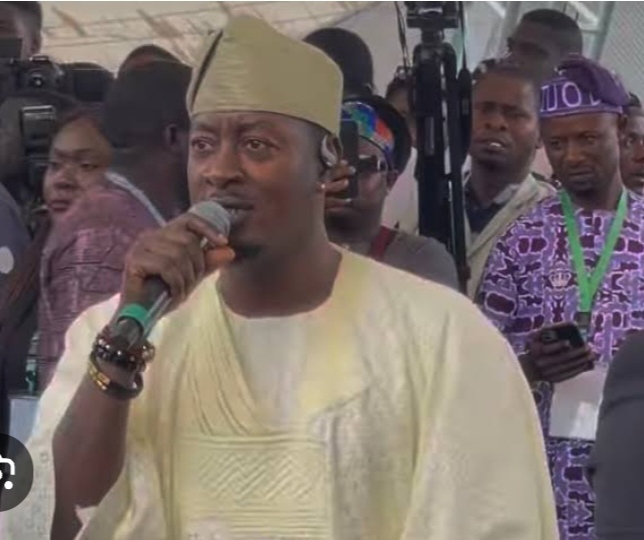The coronation of the 44th Olubadan of Ibadanland, Oba Rashidi Adewolu Akanmu Ladoja, Arusa I, was a once in a lifetime celebration full of history, culture, and the kind of grandeur only Ibadan can command. But amid the colours, chants, and traditions, one moment stole the spotlight: Taye Currency’s performance of a song “Werey La Fin Wo Werey.”
The title, which literally translates to “madness can be cured with madness,” instantly became viral fodder. Skit makers latched onto it. Social media had a field day. And suddenly, what should have been an ordinary Fuji rendition at a royal celebration turned into a national talking point.
The criticism has been swift and harsh. Many argued that the song was ill-suited for such a solemn occasion, especially in the presence of Nigeria’s President, top monarchs, and political leaders. They felt it stripped away from the royal dignity the event deserved.
But here’s the truth Taye Currency doesn’t deserve to be vilified. He deserves to be understood and forgiven.
Fuji is not just entertainment; it’s cultural expression wrapped in proverbs, satire, and sharp wit. What sounds raw in English often carries deep wisdom in Yoruba.
“Werey La Fin Wo Werey” is less about insult and more about the reality of confronting difficult situations with equal force. In the Fuji world, these lines are not just lyrics they’re philosophy.
Let’s also not forget that Taye Currency is not an outsider. He’s Ibadan’s own son, an artist who has flown the city’s cultural flag across Nigeria and beyond. His intention, by all indications, was never to embarrass but to add the fiery touch Fuji is known for. That he misjudged the setting does not erase his contribution to Ibadan’s music and identity.
More importantly, forgiveness is the nobler path. Do we really want history to remember the coronation of Oba Ladoja a monumental moment for Ibadanland for a song controversy? Or do we want it remembered for its unity, pageantry, and the beginning of a new reign?
Taye Currency’s choice may have ruffled feathers, but it should not define the celebration. If anything, it’s a reminder of how powerful music remains in shaping public discourse. Today, Ibadan and Nigeria at large can choose to turn the page with grace, with understanding, and with forgiveness.
Because in the end, the coronation was bigger than one song.


